Latest news
Find about recent news from across the Edinburgh Infectious Diseases network
Wellcome Trust PhD candidate publishes first book on outbreak prepardeness and response

'The Outbreak Atlas' written by Mackenize S. Moore, a student of the Hosts, Pathogens and Global Health PhD Programme, and Dr Rebecca Katz, Director of the Centre for Global Health, Science and Security at Georgetown University lifts the curtain on the rationale and interconnectedness of outbreak responses across different fields and at various levels.
Past and present directors of Edinburgh Infectious Diseases named as RSE fellows

Current co-director of Edinburgh Infectious Diseases Prof David Dockrell and former director Prof Ross Fitzgerald, have been named as fellows of the Royal Society of Edinburgh.
Squirrelpox virus spreads north of central Scotland
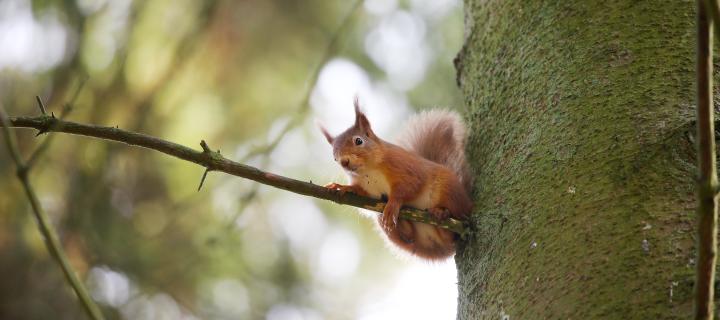
Scientists from the Royal (Dick) School of Veterinary Studies have confirmed the death of a red squirrel from squirrelpox virus in an area previously unaffected by the disease.
Research focus: from abortions in livestock to immune traits in Scottish Blackface sheep
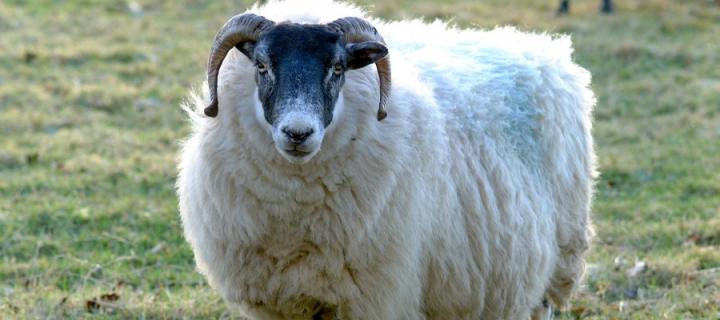
A collection of publication highlights from the Edinburgh Infectious Diseases network over the past month.
Newly announced Research and Innovation Strategy encompasses EID's themes
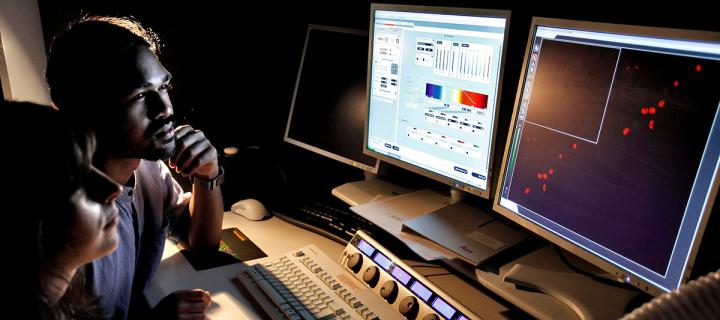
The University of Edinburgh's Research and and Innovation Strategy 2030 highlights the importance of cross-college initiatives like Edinburgh Infectious Diseases as key platforms for delivering the new strategy.
Building capacity to tackle antimicrobial resistance in Africa

Reflections on the work of the Fleming Fund Fellowship schemes in Uganda, Malawi and Kenya, that are building expertise in AMR surveillance.
Trust in NHS advice key to Covid vaccine uptake

People’s trust in the NHS was linked to increased uptake of the Covid-19 vaccine during the pandemic, a study suggests.
Virus ancestry could aid bid to predict next pandemic, study finds

Virus family history could help scientists identify which strains have potential to become the so-called Disease X that causes the next global pandemic.
West Nile virus study sheds light on mitigating outbreaks

Mapping development of mosquito-borne virus offers clarity on managing risk of infections.
Institute of Regeneration and Repair facility opened by Princess Royal
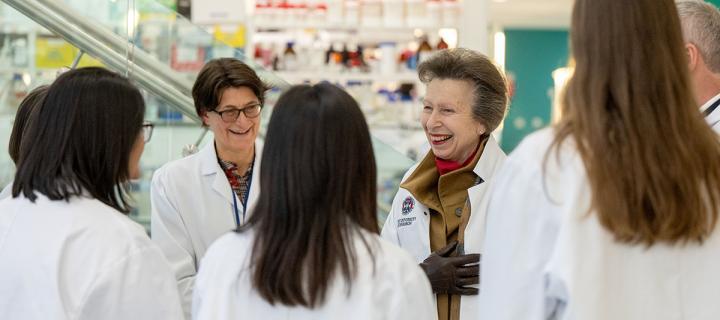
Chancellor of the University of Edinburgh, Her Royal Highness The Princess Royal, has opened a flagship building designed to help researchers address some of the world’s most pressing health concerns.
2023 Winter lecture, World AMR Awareness Week and a trip to Brussels

November was a very busy month for Edinburgh Infectious Diseases with three big events occuring in close proximity to one another: the annual Winter Lecture, World AMR Awareness Week and the UK Mission to the EU One Health Fair in Brussels.
Research focus: from a digital one health framework to covid infections in cats

A collection of publication highlights from the Edinburgh Infectious Diseases network over the past month.
Kenyan Policy Fellows shine light on Silent Pandemic through powerful documentary

November 2023: Kenyan Policy fellows, Evelyn Wesangula and Romona Ndanyi, collaborated on a documentary that explores the complexities of AMR in Kenya, aiming to captivate the attention of both policymakers and the general public.
£3.3m award supports research into tackling bird flu
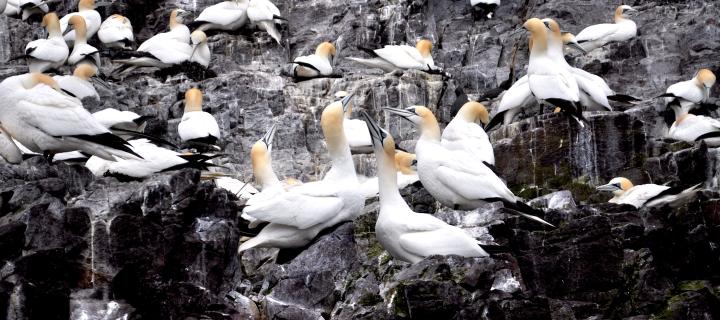
Next phase of UK collaboration builds on discoveries around disease immunity, transmission and evolution.
Summer school focuses on infectious disease research
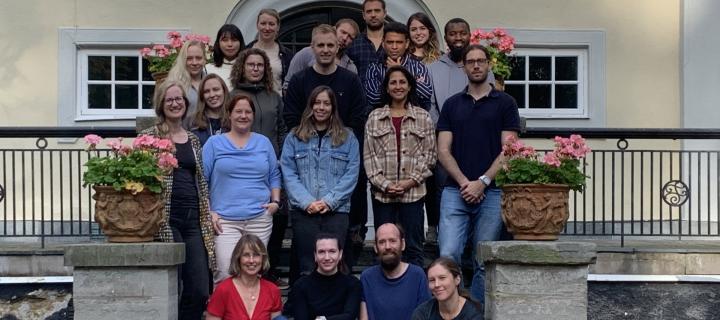
International initiative helps early career scientists develop their skills in studying infectious diseases.
Research focus: from immune responses in fruit flies to chickens resistant to avian influenza

A collection of publication highlights from the Edinburgh Infectious Diseases network over the past month.
Gene-edited chickens take significant step in fight against bird flu
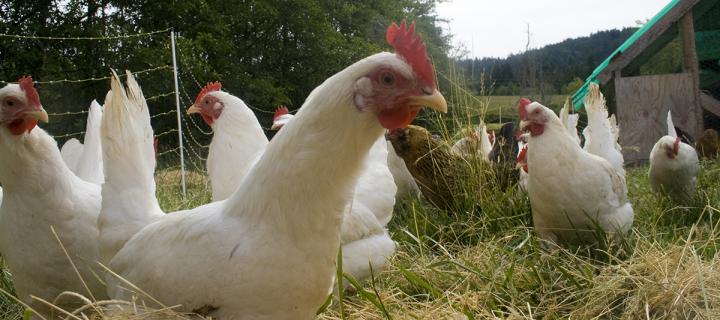
Scientists have used gene editing techniques to identify and change parts of chicken DNA that could limit the spread of the bird flu virus in the animals.
Taking malaria research to rural primary schools around Scotland

Researchers from Professor Sarah Reece's lab in the School of Biological Sciences are engaging with teachers and pupils across Scotland to talk about mosquitos, malaria parasites and body clocks.
Research focus: analysis of COVID-19 hospitalisations to infections associated with wildlife

A collection of publication highlights from the Edinburgh Infectious Diseases network over the past month.
Prof Amy Buck is honoured with the Max Planck-Humboldt Medal
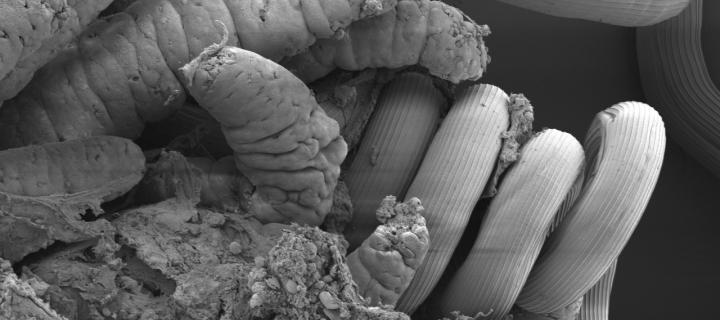
The Max Planck-Humboldt medal 2023 has been awarded to Amy Buck, Professor of RNA and Infection Biology, for her research into inter-species communication via RNA. The medal will be presented this November in Berlin.
Research focus: from canine infections to assessing the impact of HPV Vaccine in Scotland

A compilation of notable publication highlights from the Edinburgh Infectious Diseases network over the past month.
Test could transform care for costly cattle disease
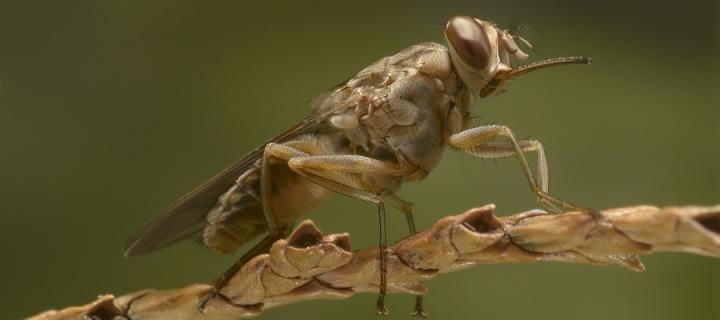
Efforts to develop a field-side test for animal trypanosomiasis could transform management of the common, costly infection in smallholder farms.
Pig gene is critical for African Swine Fever infection

Lab study pinpoints immunity-linked gene in pigs that is required for African Swine Fever virus to replicate.
TB vaccine protects calves in first weeks of life
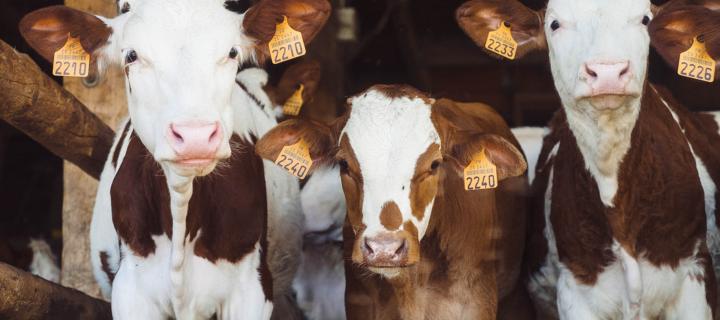
Inoculation within the first month of life is effective, offering greater scope for protecting calves against disease.
Moredun awarded grant to develop new vaccines for bovine respiratory disease

Moredun Research Institute (MRI), in collaboration with French animal health company Ceva Sante Animale (Ceva), have been awarded £900,000 (80% funded) to develop new vaccines that target the viruses and bacteria responsible for bovine respiratory disease (BRD).
App offers fast method of tracing infectious diseases

Pilot study shows a novel contact tracing app could help protect groups at risk of catching and spreading infectious diseases in the Global South.
Parasites of viruses drive superbug evolution
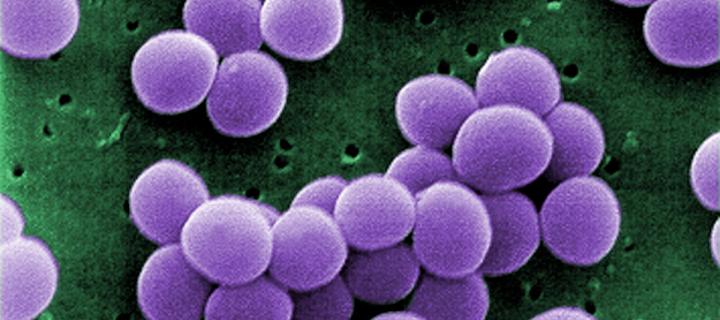
Newly discovered mechanism enables bacteria to rapidly evolve, and could inform phage therapy.
Rapid infection test could curb antibiotic resistance
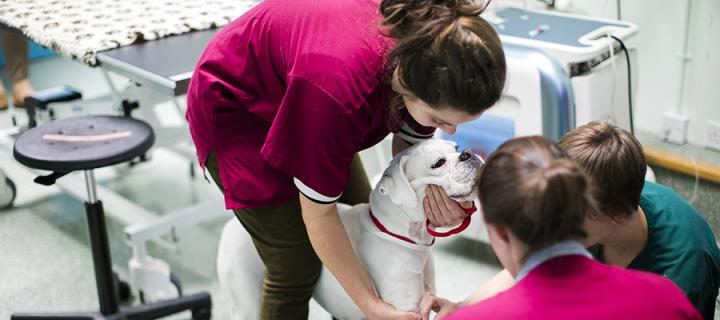
Novel system speeds diagnosis of bacterial infections in dogs, enabling effective choice of treatment.
Covid risk study pinpoints ethnic inequalities
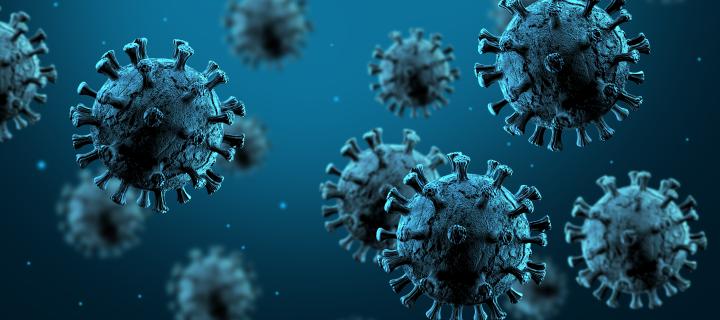
Scotland’s White Gypsy/Traveller ethnic minority group were at greater risk of Covid-19 hospitalisation or death than the majority of the population, research reveals.
Malawi's Alumni Fleming Fund Fellows visit Edinburgh

University of Edinburgh hosts Alumni Fleming Fund Fellows from Malawi, accompanied by Dr. Collins Mitambo, Head of Research at the Ministry of Health.
Research focus: from eye infection to future pandemic preparedness

Publication highlights from the Edinburgh Infectious Diseases network in the past month.
£46.3 million funding boost to shine light on dark genome
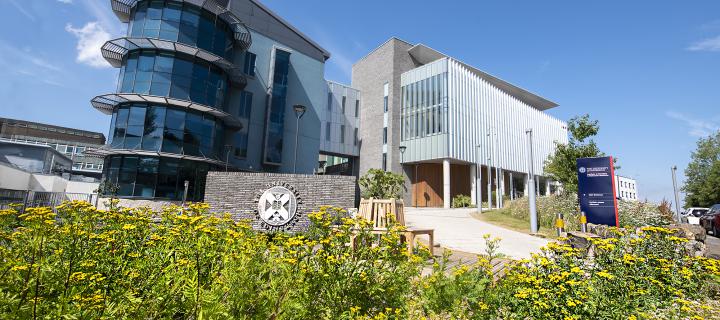
Scientists at the University of Edinburgh will receive £46.3 million from the Medical Research Council (MRC) to support ongoing activity at the MRC Human Genetics Unit.
Genetic material linked to dairy calf development

Molecular material associated with growth, fertility, and infection risk in dairy calves could serve as indicator of productivity in cows.
Key gene blocks spillover of avian flu to humans
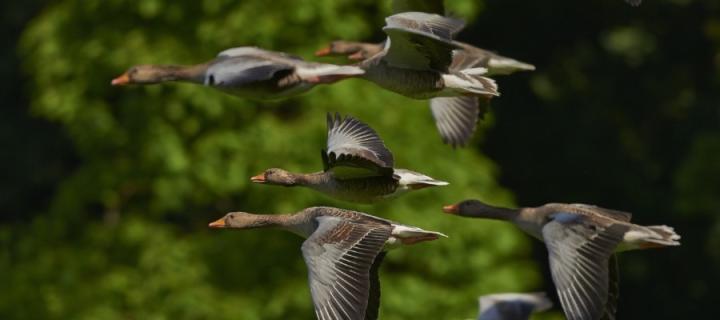
Newly identified gene shown to prevent most strains of bird flu from causing infection in humans.
Deer reveal nature’s secrets across half a century

A 50-year study of red deer on a remote Scottish island is providing new insights into evolution in action and the impact of climate change in the natural world.
Research focus: from chicken vaccines to the global response to AMR

Explore the noteworthy publications from Edinburgh Infectious Diseases in the past month.
12th Annual Edinburgh Infectious Diseases Symposium
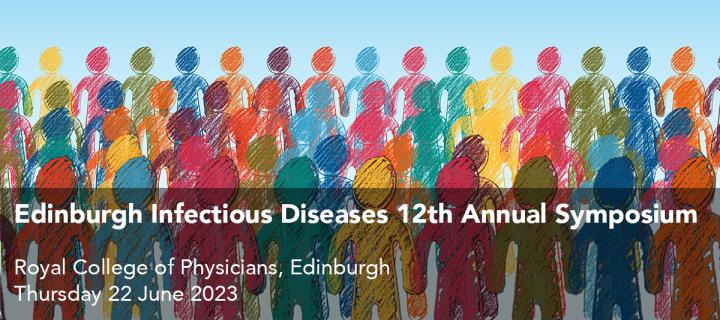
Details about the programme, Ker Memorial Speaker and Prize Winner, and voting arrangements for the poster sessions for this year's Annual Symposium
Unraveling cattle immunity: the role of epigenetic markers

Unveiling cattle immune system diversity and disease resistance potential through DNA chemical markers
Verity Hill awarded 2023 Ker Memorial Prize in Infectious Diseases

We are delighted to announce that Dr Verity Hill, from Prof Andrew Rambaut's lab in the School of Biological Sciences, is the winner of this year's prize for her work on Ebola and SARS-CoV-2.
Congratulations to the nominees for the Ker Memorial Prize 2023

The Ker Memorial Prize is awarded annually for the best PhD thesis in infectious diseases at the University of Edinburgh.
Professor Lisa Boden appointed new Head of the Royal (Dick) School of Veterinary Studies

A leading specialist in veterinary public health and population medicine has been appointed as the new Head of the Royal (Dick) School of Veterinary Studies.
Research focus: From Influenza to plant pathogens and global health

A compilation of notable publication highlights from the Edinburgh Infectious Diseases network over the past month.
Method offers boost to safety profile of live vaccines
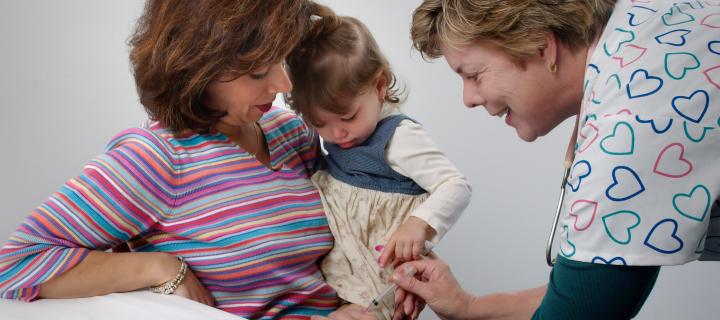
Weakening virus by amending genetic code promises route to large-scale production of live vaccines.
Successful symposium on AMR in Livestock Production in a One Health Context
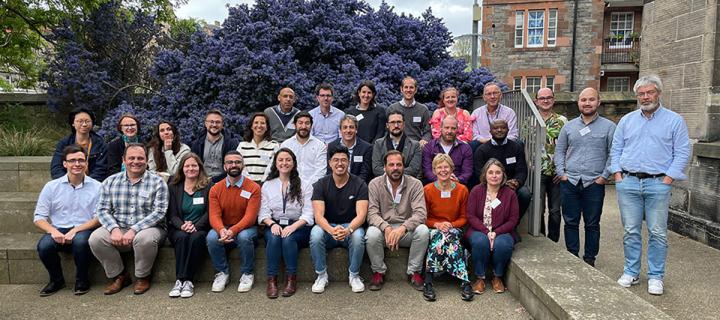
The OECD-CRP Symposium on AMR in Livestock Production in a One Health Context was held in Edinburgh on 22-24 May 2023.
Research focus: April 2023 - from Avian flu to equitable global health

A digest of the publication highlights from across the Edinburgh Infectious Diseases network over the past month.
Hands on with infection biology at the Edinburgh Science Festival

The Edinburgh Science Festival ran a vibrant programme of activities for all ages at the National Museum of Scotland during the Easter break in April 2023.
Congratulations to the new Chancellor's Fellows in the College of Science and Engineering
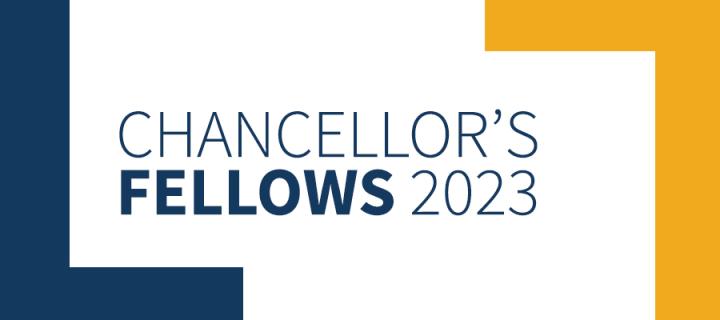
A group of outstanding early career researchers have been awarded one of the University of Edinburgh’s most prestigious fellowships.
Fellowships recognise leading research talent at the Roslin Institute

Prestigious awards from University and BBSRC nurture outstanding scientists and pioneering projects.
Konrad Adenauer Foundation Scholars visit Edinburgh

The group of 24 students were in Edinburgh as part of a study tour to learn about "Science: Study, Research and Life. A comparison of the systems in Germany and Great Britain ".
Long-term approach on bird flu is best, study finds

Lasting conservation measures targeted at most vulnerable species are recommended in a report for the Scottish Government.
Research Focus: From fruit fly survival to imaging immune cells

We explore publication highlights from across Edinburgh Infectious Diseases, March 2023.
Study provides insights into child hepatitis outbreak
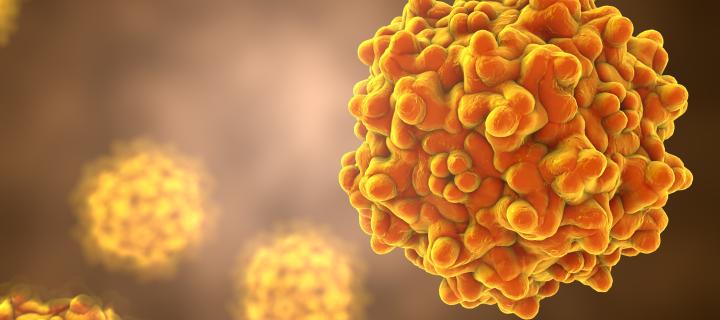
A common virus, alongside an underlying genetic predisposition, is likely to have played a key role in the recent worldwide outbreak of acute hepatitis in children.
Scottish communities to use Minecraft to learn about disease spread

A video-game based model of infectious disease spread will form the basis of a pilot public engagement project that aims to engage Scottish communities with public health research data.
Global health research needs gravity shift to deliver impact
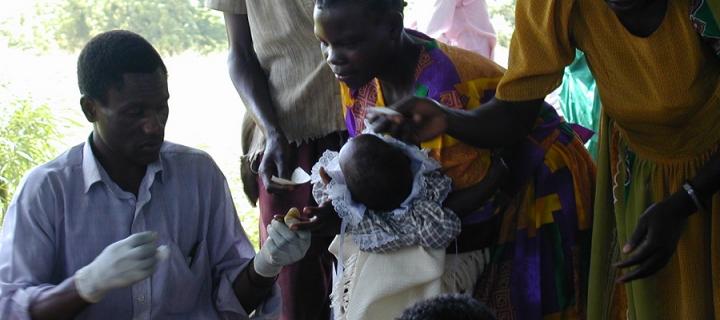
A successful Africa-led global health research programme, contributing to World Health Organisation (WHO) policy development, has shared the key to its success and is calling for a shift in the centre of gravity of health research, designed to benefit developing countries.
Covid-19 vaccine not linked with period disruption, study finds

Covid-19 vaccination does not cause concerning changes to periods, research has found.
Fossil site is ‘Rosetta Stone’ for understanding early life

Leading edge technology has uncovered secrets about a world-renowned fossil hoard that could offer vital clues about early life on earth.
University commits fund for African partnerships

A multi-year commitment to explore innovative educational opportunities for African students and build research partnerships across the African continent has been announced by the University of Edinburgh.
Whether born naturally or via cesarean section, babies receive essential microbes from their mothers

Do cesarean-born babies miss out on essential microbes? New evidence suggests that the answer may be “no.”
Covid rule fines peaked in latter stages of lockdown, study finds

Most fines for Covid rule breaches were issued when England was in its third national lockdown and Wales was in its second, research shows.
Multi-species study aids understanding of bird flu
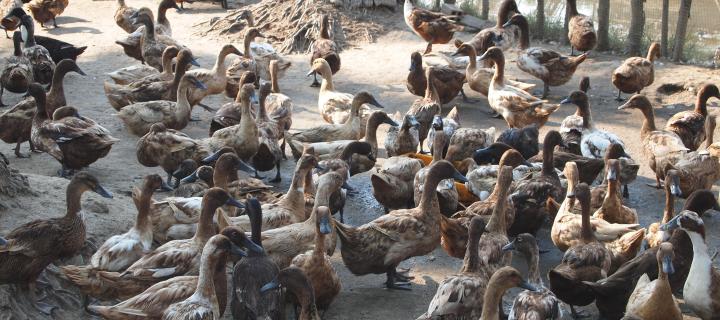
Response to infection in birds from chickens to crows points to biological factors linked to disease resistance.
Research focus: from apes to organoids
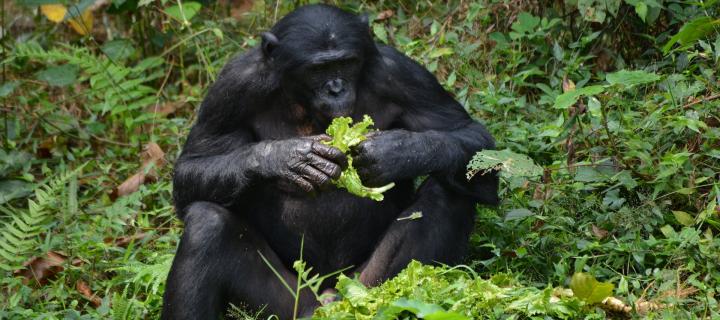
We explore publication highlights from across Edinburgh Infectious Diseases, Feb 2023.
Common cold may have helped curb Africa’s Covid-19 death toll

The higher prevalence of common cold viruses in Africa may have helped the continent experience relatively lower death rates from Covid-19, a study of people in Zimbabwe suggests.
Covid-19: Targeting sugar-binding proteins and immunity in cancer patients

Recent Covid-19 clinical trial results from Edinburgh Infectious Diseases
Covid-19 vaccine scientists win prestigious prize

Two scientists who made important contributions to the development of Covid-19 vaccines have received a prestigious award from the University of Edinburgh.
Highlights from 2022
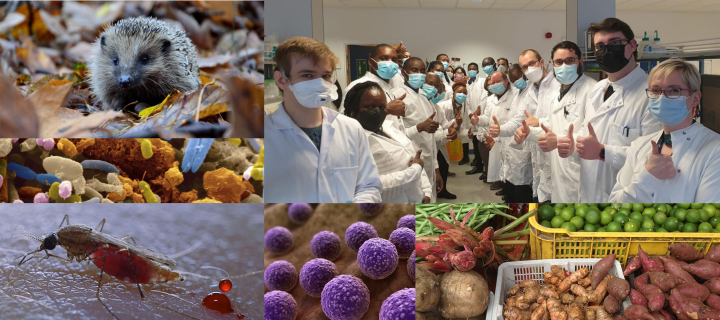
Featuring reflections of some of the stories that took place across Edinburgh Infectious Diseases – Covid-19 risks and recovery plans, liver regrowth by leprosy bacteria, the evolution of antibiotic resistance and more.
Intensive farming and trade drove spread of livestock infection

Evolutionary study of bacteria that cause a common infection of cattle reveals their origin and spread via ocean trade links, shedding light on modern-day disease.
Scotland’s Covid-19 sewage data could reveal new health insights
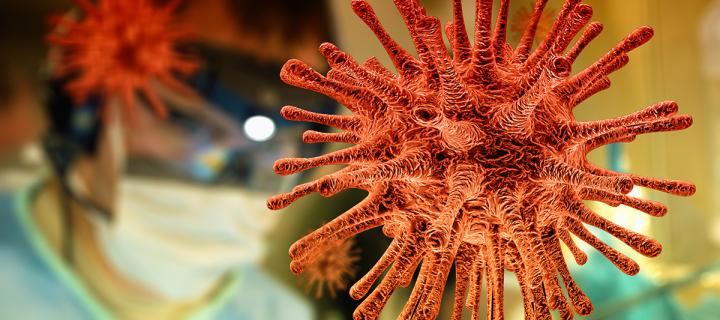
Data from Scotland’s Covid-19 Wastewater Programme could offer future insights into the pandemic, its long-term health impacts and help tackle other viruses.
Baby’s jab responses linked to birth delivery method, study finds

The method by which a baby was delivered is associated with how its immune system will respond to two key childhood vaccines, research suggests.
Ancient disease has potential to regenerate livers

Leprosy is one of the world’s oldest and most persistent diseases but the bacteria that cause it may also have the surprising ability to grow and regenerate a vital organ.
World Antibiotic Awareness Week 2022 - Edinburgh AMR Showcase
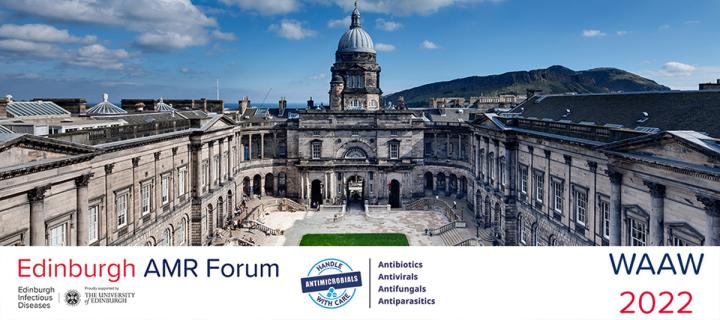
To mark World Antibiotic Awareness Week 2022, on 21 November 2022 the Edinburgh AMR Forum is hosting the AMR showcase.
Genetic analysis key to understanding Legionella risk, study finds

Routine sampling of water supplies and genomic sequencing – determination of the entire genetic makeup - of Legionella bacteria could play a key role in identifying the source of Legionnaires’ disease outbreaks, research suggests.
Fighting a pandemic using Digital Contact Tracing in Uganda’s haulage industry

A new study fully documents the development of a Digital Contact Tracing tool for use on the African continent.
Post-pandemic diet shifts could avert millions of premature deaths

Covid-19 recovery plans should focus on healthier diets as much as economic growth to prevent huge numbers of avoidable deaths, research suggests.
Recordings now available from 11th Annual Symposium

Together Again, the 11th Annual Symposium from Edinburgh Infectious Diseases, was held on Thursday 23 June at the Roslin Institute.
Keith Matthews receives 2023 Alice and C. C. Wang award in Molecular Parasitology

Many congratulations to Prof Keith Matthews, chair of Parasite Biology in the School of Biological Science, who has received the award for seminal contributions to the field.
2022 Ker Memorial Prize awarded to Dr Mabel Tettey

The annual prize for the most outstanding PhD thesis in Infectious Diseases has been awarded to Mabel Tettey in the School of Biological Sciences.
Vaccine campaign to free Indian state from rabies
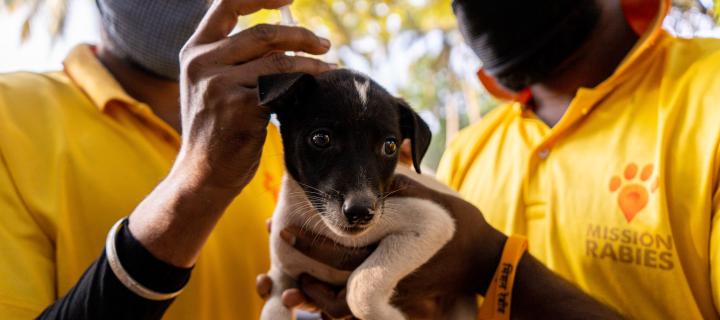
Data-driven, One Health approach puts Goa on target to eliminate disease and save lives.
Pandemic Science Hub to develop better drugs to fight lung disease
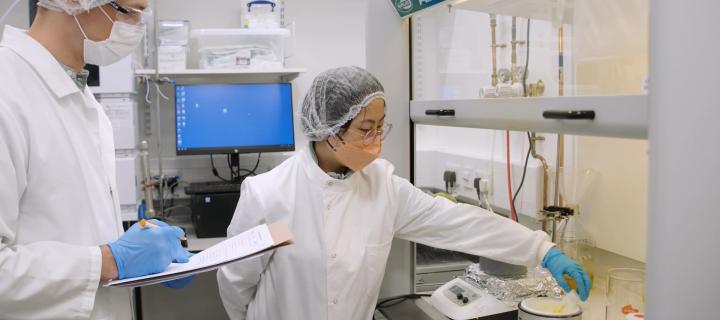
A new multi-million pound research programme to develop treatments for lung infections such as Covid-19 and future pandemics has been announced at the University of Edinburgh with support from a significant donation by Baillie Gifford.
National assessment highlights research excellence in agriculture, food and veterinary sciences

UK Research Excellence Framework results affirm outstanding research environment and impact on society.
School of Biological Sciences Ranked in UK Top 5 for Research Quality

The School of Biological Sciences is ranked fifth in the UK, and top ranked in Scotland, for the quality and breadth of its research, known as research power, by Times Higher Education.
Research rankings confirm Edinburgh as world leader

Edinburgh’s position as one of the UK’s leading research universities has been reaffirmed by the results of the 2021 Research Excellence Framework (REF).
Study sheds light on bacterial sharing between humans and animals

A recent paper demonstrates how infectious diseases and antimicrobial resistance can be shared between humans and animals in an urban environment.
Century-old malaria parasite puzzle solved as ape origin traced

Researchers in Edinburgh have solved a 100-year-old mystery about the evolutionary links between malaria parasites that infect humans and chimpanzees.
Fleming Fund AMR fellows visit Edinburgh

The Fleming Fund supports training and capacity building for surveillance of antimicrobial resistance in low and middle income countries.
Together Again - 2022 Edinburgh Infectious Diseases Symposium
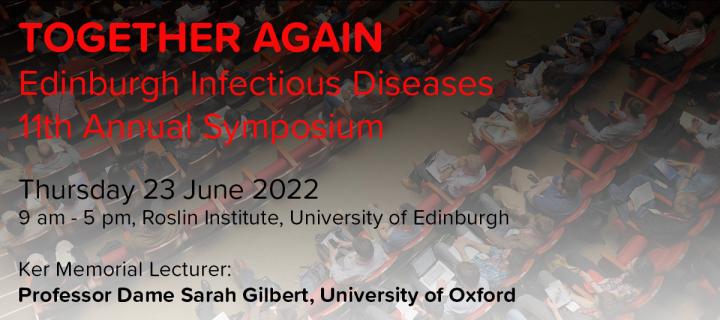
The 11th Annual Edinburgh Infectious Diseases Symposium will be held on Thursday 23 June 2022 - please save-the-date.
Covid-19 mixed with flu increases risk of severe illness and death

Adults in hospital who have Covid-19 and the flu at the same time are at much greater risk of severe disease and death compared with patients who have Covid-19 alone or with other viruses, research shows.
Tackling Toxoplasmosis: A new animated film about the world’s most successful parasite

The Moredun Research Institute Moredun has released a short animation to help inform and educate people about Toxoplasma gondii.
Antibiotics after birth affects gut microbes of babies, study finds

Treating babies with antibiotics in the first week of life is linked with a decrease in healthy bacteria necessary to digest milk and an increase in antimicrobial resistance, research suggests.
Edinburgh work with Fleming Fund fellowships highlighted by ICARS
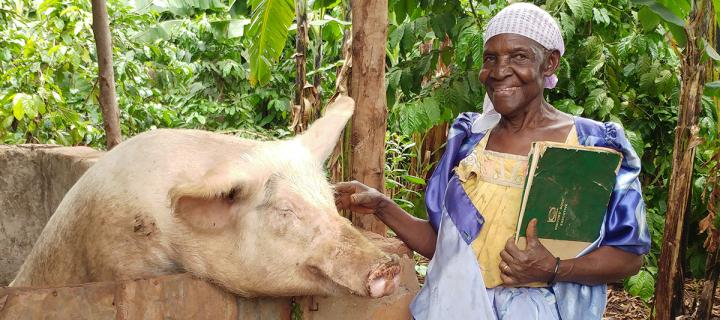
The University of Edinburgh's work with the Fleming Fund fellowship Scheme has been highlighted by the conference organised by the International Centre for AMR Solutions (ICARS).
First virus infection linked with infections later in life, study finds

Asymptomatic viral infections in the first days and weeks of a baby’s life are associated with an increased risk of respiratory infections later in life, research suggests.
Antibiotic resistance predates modern medicine
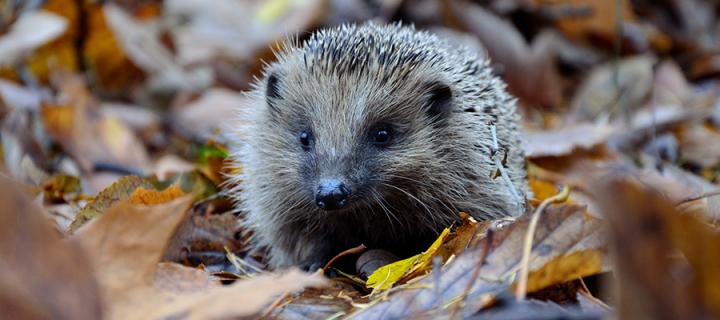
Bacteria with antibiotic resistance infected wildlife centuries ago, DNA family tree shows.
Bacterial gene has key role in Legionnaires’ disease

A large-scale study of bacterial DNA samples had uncovered the significance of a gene in causing human infections.
Black children overlooked in scar tissue disorder tests, study says

An immune disease that can damage vital organs – and is supposedly rare in young people – is more common than previously thought among Black children, a study from the School of Biological Sciences suggests.
Genetic contact tracing could help curb early TB outbreaks

The novel use of genetic contact tracing to identify the source of a bovine tuberculosis outbreak could signal a new approach in managing the disease, a study suggests.
Edinburgh Infectious Diseases Winter Lecture 2021 – Sir Jeremy Farrar

This year we are delighted to have Sir Jeremy Farrar, Director of the Wellcome Trust, giving our annual public Winter Lecture on Tuesday 16 November.
Wellcome Trust 4-year PhD programmes now recruiting for 2022

Edinburgh Infectious Diseases is delighted to announce that we are now accepting applications for the 2022 cohorts of students on two Wellcome Trust funded 4-year PhD programmes.
Vaccines offer strong protection against death from Delta, study says
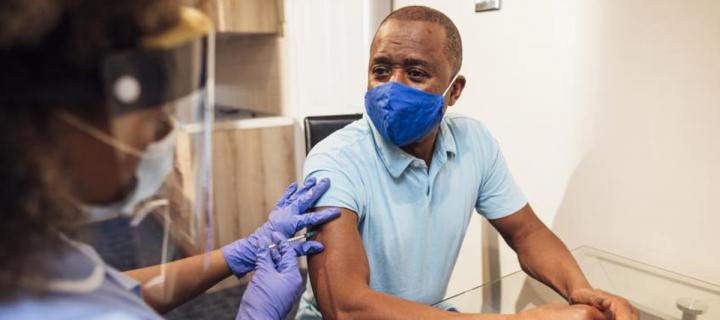
Vaccination is over 90 per cent effective at preventing deaths from the Delta variant of Covid-19, according to the first country-level data on mortality.
Remote monitoring provides early help for Covid-19 patients

Patients at risk of developing severe Covid-19 symptoms have been successfully treated at an early stage thanks to the use of a remote monitoring service.
New study challenges understanding of pandemic preparedness and resilience in Africa

Countries in Africa assessed as being least vulnerable to an epidemic were the worst affected by Covid-19, new research suggests.
Call for speakers: Edinburgh Infectious Diseases Early Career Researcher Symposium

We are delighted to open the call for speakers at the first Edinburgh Infectious Diseases Early Career Researcher Symposium.
New research into novel vaccines against ovine enzootic abortion at Moredun
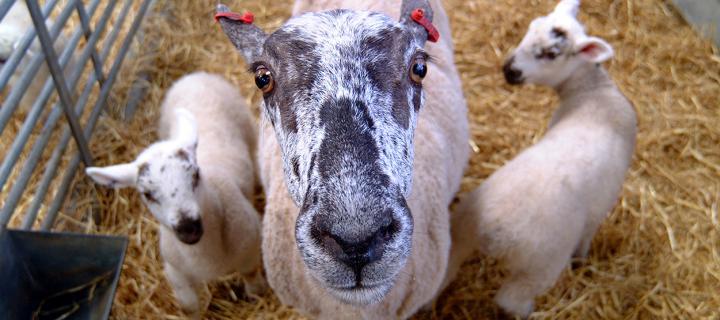
A new vaccine being developed against ovine enzootic abortion by scientists at the Moredun Research Institute has shown very promising results in laboratory trials.
On World Mosquito Day 2021 highlighting researchers at the University of Edinburgh studying malaria

Here we highlight some of the groundbreaking researchers based in the School of Biological Sciences at the University of Edinburgh who are tackling malaria.
Urgent action is needed to tackle impact of early childhood schistosomiasis on education

A new study reveals that the negative impacts of schistosome infection on early child development and educational attainment can be reversed within 6 months after treatment with the drug praziquantel.
Genetic variations linked to severe Covid-19 risk identified

Edinburgh researchers are part of an international consortium who have discovered 13 DNA sequences that are associated with people developing the most severe form of Covid-19.
Listen again: Keeping Connected - 10th Annual Symposium

We were delighted to host our virtual Annual Symposium on Wednesday 24 June 2021.
Fast, precise and unintrusive Covid tests trialled at University
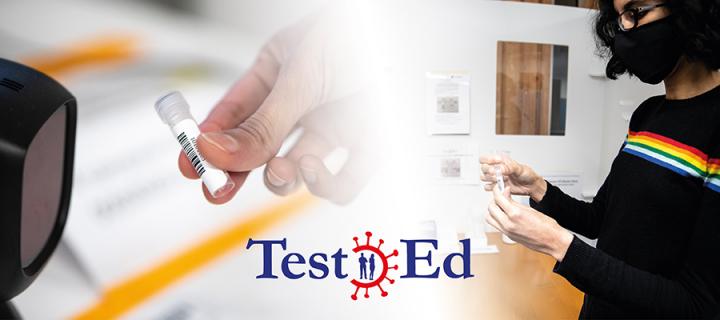
A potentially more accurate, less invasive and cheaper method of screening for Covid-19 is being piloted at the University of Edinburgh.
Delta variant increases hospitalisation but vaccine continues to protect

The Delta variant of Covid-19 is associated with approximately double the risk of hospitalisation compared with the Alpha variant, according to a new nationwide study.
Dr Derick Osakunor is winner of 2021 Ker Memorial Prize

Derick Osakunor was awarded the prize for his work with Prof Francisca Mutapi on the treatment and control of Schistosomiasis in preschool aged children.
Covid vaccine linked to low platelet count, nationwide study suggests

A condition that affects the blood, known as idiopathic thrombocytopenic purpura (ITP), may be associated the Oxford-AstraZeneca vaccine in rare cases, research suggests.
Professor Julie Fitzpatrick OBE appointed Chief Scientific Advisor for Scotland

Professor Fitzpatrick will take up the new advisory role with the Scottish Government on 14 June 2021.
New Covid-19 dashboard launched to track spread across Scotland
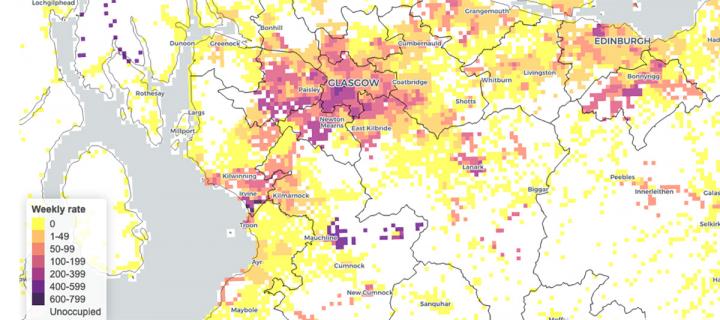
The Tracking and Modelling for Scotland dashboard provides interactive detailed weekly maps to track the spread of COVID-19 across the region, to help inform control strategies.
Light-sensitive drug acts as Trojan horse to kill drug-resistant bacteria

A light-activated drug that can enter and kill bacterial and cancer cells without harming nearby healthy cells has been tested successfully.
10th Annual Edinburgh Infectious Diseases Symposium - Keeping Connected

We are delighted that we will be hosting our annual symposium on Wednesday 24 June 2021. Registration is now open!
Covid-19 early warning system could avert future lockdowns

Scientists are developing a coronavirus early warning system that could prevent future lockdowns by combining data on vaccine uptake with wastewater testing.
Successful workshop on Disease Transmission

Edinburgh Infectious Diseaes hosted a workshop on 29 April 2021 exploring key topics in transmission biology.
Loeske Kruuk awarded ERC Advanced Grant

Professor Loeske Kruuk, who will be joining the School of Biological Sciences later in 2021, has been awarded a European Research Council (ERC) Advanced Grant, to study evolution in wild animal populations.
Sunlight linked with lower Covid-19 deaths, study suggests

Increased exposure to the sun’s rays – specifically UVA - could act as a simple public health intervention if further research establishes it causes a reduction in mortality rates, experts say.
€1M research project to focus on a progressive brain disease in deer

A team led by researchers at the Roslin Institute will investigate the spread of Chronic Wasting Disease (CWD), a condition similar to BSE in cattle, in European deer.
Francisca Mutapi selected as a TED2021 Fellow

Global Health Professor to join the newest class of 20 global visionaries, sharing their big ideas throughout the events planned for 2021.
Mysteries of malaria infections deepen after human trial study
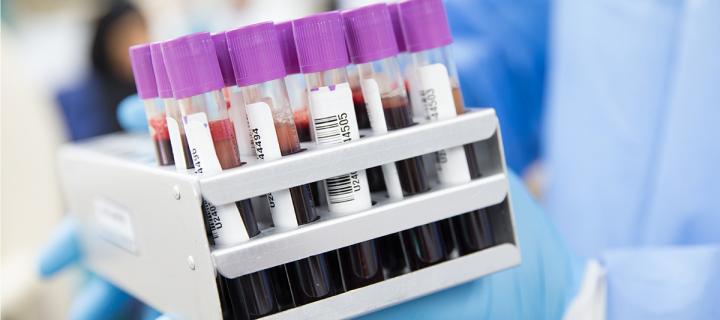
Scientists have discovered that tracking malaria as it develops in humans is a powerful way to detect how the malaria parasite causes a range of infection outcomes in its host.


